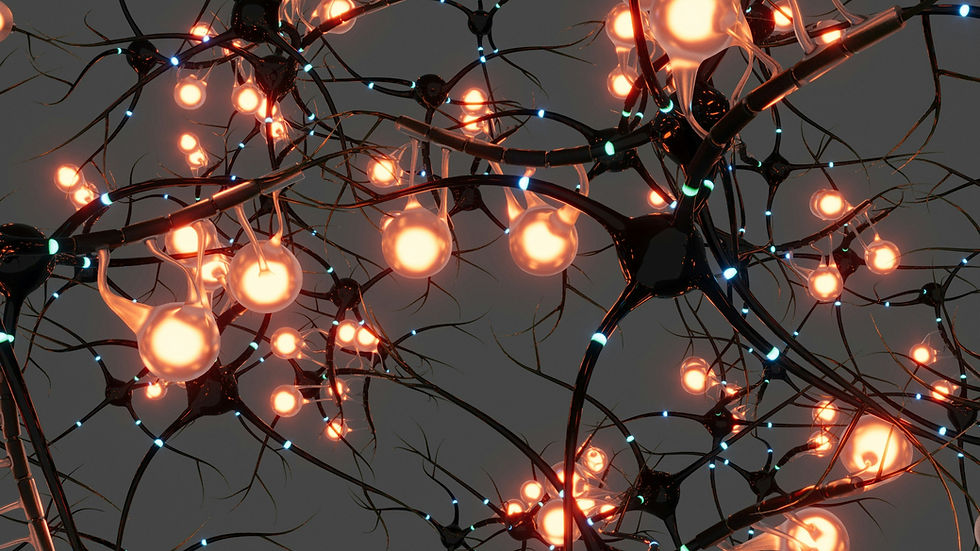Seven Essential Truths About Women’s Health Experts Want Everyone to Know
- The Female Body

- Mar 12, 2025
- 3 min read

Women’s health has long been misunderstood, overlooked, and underfunded. Even in 2025, critical health issues like menopause, endometriosis, and heart disease are still shrouded in misconceptions and taboos.
To set the record straight, leading women’s health experts are debunking some of the most common myths and shedding light on what every woman—and the people around her—should know.
1. Painful, Heavy Periods Are Not Normal
Many women suffer through debilitating periods, believing them to be a normal part of life. But experts insist that painful, heavy, and irregular periods should never be ignored.
“We often see women who have suffered in silence for years, with periods so painful they interfere with daily life,” says Dr Samantha Wild, clinical lead for women’s health at Bupa Health Clinics.
Conditions like endometriosis, adenomyosis, fibroids, or hormonal imbalances could be to blame. If your periods are disrupting your daily routine, it’s time to seek medical advice.
2. Heart Disease Affects Women Just as Much as Men
Many people still think heart disease is primarily a “man’s disease”, but the truth is that it’s the leading cause of death in women.
“Coronary heart disease kills more than twice as many women as breast cancer in the UK every year,” Dr Wild explains.
What’s even more concerning is that women often present with different symptoms than men—such as nausea, jaw pain, and fatigue—which can lead to misdiagnosis or delayed treatment. Knowing the risks, advocating for yourself, and making lifestyle changes can help protect your heart health.
3. Menopause Can Start Earlier Than You Think
Menopause isn’t just something that happens to women in their 50s. Symptoms can start as early as the mid-40s, or even earlier for some women.
“Some women experience early menopause (before 45), while others may develop primary ovarian insufficiency (before 40),” explains Dr Claire Phipps, GP and menopause specialist at London Gynaecology.
Understanding perimenopause—the years leading up to menopause—can help women recognise early signs like mood swings, irregular periods, or brain fog and seek support sooner.
4. Menopause Is More Than Just Hot Flushes
The stereotypical image of menopause involves hot flushes and night sweats, but the reality is far more complex.
“Menopause symptoms can include nausea, joint pain, allergies, memory loss, and even palpitations,” says Dr Shirin Lakhani, an expert in intimate and women’s health.
These symptoms can be life-altering, and the lack of awareness often leaves women feeling lost and unsupported. Menopause care should address the full spectrum of symptoms, not just the most commonly discussed ones.
5. Pregnancy Does Not Cure Endometriosis
A persistent myth in women’s health is that getting pregnant can "cure" endometriosis. However, experts say this is completely false.
“Some women may experience temporary relief from symptoms due to hormonal changes, but pregnancy is not a cure,” explains Dr Hemant Vakharia, consultant gynaecologist at London Gynaecology.
Women with endometriosis deserve evidence-based treatments, including medication, hormonal therapy, or surgery—not outdated advice that dismisses their pain.
6. Endometriosis May Not Show Up on Scans
Many women suffering from severe pelvic pain are told their ultrasound or MRI results are "normal"—but that doesn’t mean they don’t have endometriosis.
“Endometriosis can be hard to detect, especially in its early stages or when affecting areas not easily visualised on standard scans,” Dr Vakharia says.
If you’re experiencing chronic pain, heavy periods, or pain during sex, don’t accept a normal scan as the final answer—seek a specialist in endometriosis for further evaluation.
7. UTIs Are Often Preventable
Recurring urinary tract infections (UTIs) can be frustrating and painful, but small lifestyle changes can help reduce the risk.
“Dehydration, hormonal changes, and even holding in urine for too long can increase the risk of UTIs,” says Dr Shazia Malik, consultant obstetrician and gynaecologist at The Portland Hospital.
Simple habits like staying hydrated, urinating after sex, wiping front to back, and avoiding heavily scented bath products can reduce your chances of infection.
Why Women’s Health Knowledge Matters
For too long, women’s health has been misunderstood, dismissed, and under-researched. Many women still face delayed diagnoses, misinformation, and stigma around their health concerns.
By sharing expert knowledge and breaking down outdated taboos, we can empower women to take control of their health, advocate for better care, and demand the medical attention they deserve.
Women shouldn’t have to “just deal with it” anymore. It’s time for real conversations, real research, and real action to improve women’s healthcare worldwide.




Comments